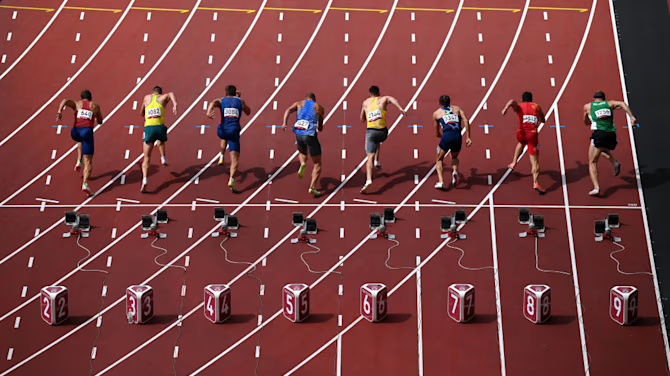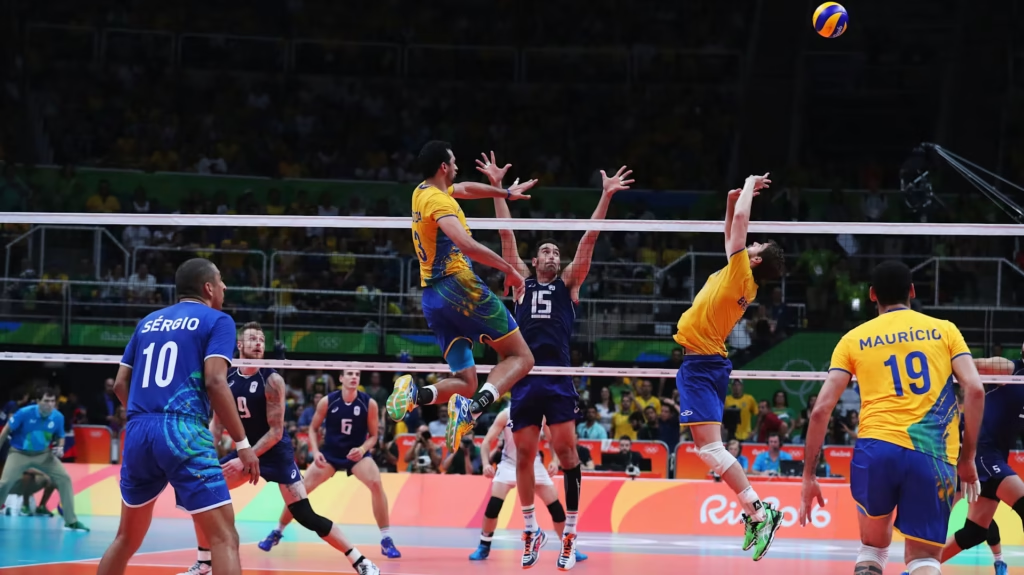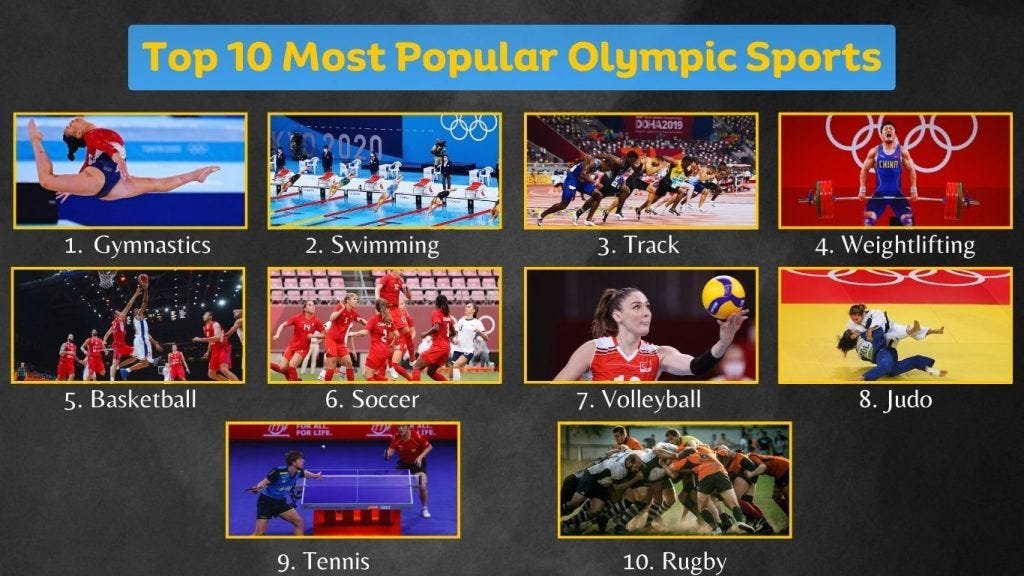The Olympic Games have always captivated global audiences with a blend of athleticism, competition, and tradition. While hundreds of sports have graced the Olympic stage over the years, some have left a more profound impact than others. In this guide, we’ll dive into the top 10 most popular Olympic sports of all time based on global viewership, athlete participation, fan following, and historical significance.
1. Athletics (Track and Field)

Track and field events are the heart of the Olympic Games. From the 100-meter dash to the marathon, athletics showcases raw speed, strength, and endurance.
Why It’s Popular:
- Widely accessible around the world
- Includes iconic events like the 100m sprint and long jump
- Produced legends like Usain Bolt and Carl Lewis
2. Gymnastics
Artistic gymnastics, rhythmic gymnastics, and trampoline have become Olympic staples, especially popular among viewers for their grace, power, and complexity.
Why It’s Popular:
- Visually captivating and dramatic
- Appeals to a wide demographic, especially younger audiences
- Stars like Simone Biles have elevated its profile
3. Swimming

Olympic swimming events are known for their intensity and tight finishes, often coming down to fractions of a second.
Why It’s Popular:
- Multiple events and chances for medals
- High drama and record-breaking performances
- Michael Phelps’ historic medal haul brought massive attention
4. Soccer (Football)
Soccer is the world’s most popular sport, and although the Olympic version is less prestigious than the FIFA World Cup, it still draws massive attention.
Why It’s Popular:
- Global fan base and passionate national rivalries
- Opportunity to see rising young stars
- Both men’s and women’s tournaments
5. Basketball
Olympic basketball has grown significantly, thanks in part to the inclusion of NBA players since 1992.
Why It’s Popular:
- Fast-paced and exciting games
- International stars compete alongside NBA legends
- Women’s basketball also attracts attention
6. Tennis
Although tennis is a year-round professional sport, Olympic tennis brings a unique prestige and patriotic pride.
Why It’s Popular:
- Participation from top global players
- Mix of singles, doubles, and mixed doubles events
- Emotional moments and historic wins
7. Boxing
Olympic boxing has a rich history, producing legendary fighters who later dominate professional ranks.
Why It’s Popular:
- Raw and competitive bouts
- Long-standing traditions in countries like Cuba, USA, and Russia
- A launchpad for professional boxing careers
8. Volleyball (Indoor and Beach)

Both indoor and beach volleyball have found large followings thanks to their excitement, teamwork, and athletic displays.
Why It’s Popular:
- Dynamic gameplay and intense rallies
- Beach volleyball adds a festive, outdoor atmosphere
- Consistent global participation
9. Wrestling
Wrestling has ancient Olympic roots and has maintained a strong place in the Games, despite attempts to remove it.
Why It’s Popular:
- One of the oldest Olympic sports
- High strategy and strength involved
- Enthusiastic followings in countries like Iran, Russia, and the USA
10. Figure Skating (Winter Olympics Special Mention)
Although not part of the Summer Olympics, figure skating deserves a spot due to its popularity during the Winter Games.
Why It’s Popular:
- Combines sport and art
- Draws massive television audiences
- Has created international superstars
Honorable Mentions
- Table Tennis – Extremely popular in Asia, especially China.
- Cycling – Both track and road cycling events have seen rising viewership.
- Judo and Taekwondo – Martial arts with strong global followings.
- Skateboarding – A newer addition capturing youth culture.
Global Impact of Olympic Sports
Olympic sports go beyond competition—they shape cultures, inspire generations, and unite countries. The top sports have a ripple effect, leading to youth development programs, national investments in training, and international rivalries that elevate their appeal.
What Makes an Olympic Sport Popular?
1. Accessibility
If a sport is widely practiced across continents, it naturally garners more viewership.
2. Star Power
Superstar athletes help elevate the sport’s profile.
3. Spectator Appeal
Visually engaging and easy-to-understand sports tend to attract larger audiences.
4. Historic Legacy
Some sports are deeply ingrained in Olympic tradition, contributing to sustained popularity.
Also Read : Most Popular Team Sports In The USA And Their Benefits
Conclusion
The Olympic Games celebrate the diversity and excellence of sports from around the world. While every discipline has its unique charm, the top 10 sports listed here stand out for their global appeal, historical impact, and unforgettable moments. Whether you’re a lifelong fan or a new viewer, these events promise excitement, inspiration, and a true sense of international unity.
FAQs
1. Why is athletics considered the most important Olympic sport?
Athletics includes some of the oldest and most iconic Olympic events, such as the 100m sprint and marathon, symbolizing the essence of the Games.
2. Has any sport ever been removed from the Olympics?
Yes, sports like baseball and softball have been removed and later reinstated. Wrestling was nearly cut but reinstated due to global support.
3. What’s the difference between Olympic soccer and the FIFA World Cup?
Olympic soccer typically features younger players (U-23 with a few exceptions), while the World Cup features full senior national teams.
4. Why is figure skating mentioned if it’s a Winter Olympic sport?
Figure skating is included due to its enormous popularity and viewership during the Winter Olympics.
5. Are new sports added to the Olympics regularly?
Yes, the IOC periodically adds new sports to reflect changing interests—recent additions include skateboarding, surfing, and sport climbing.
